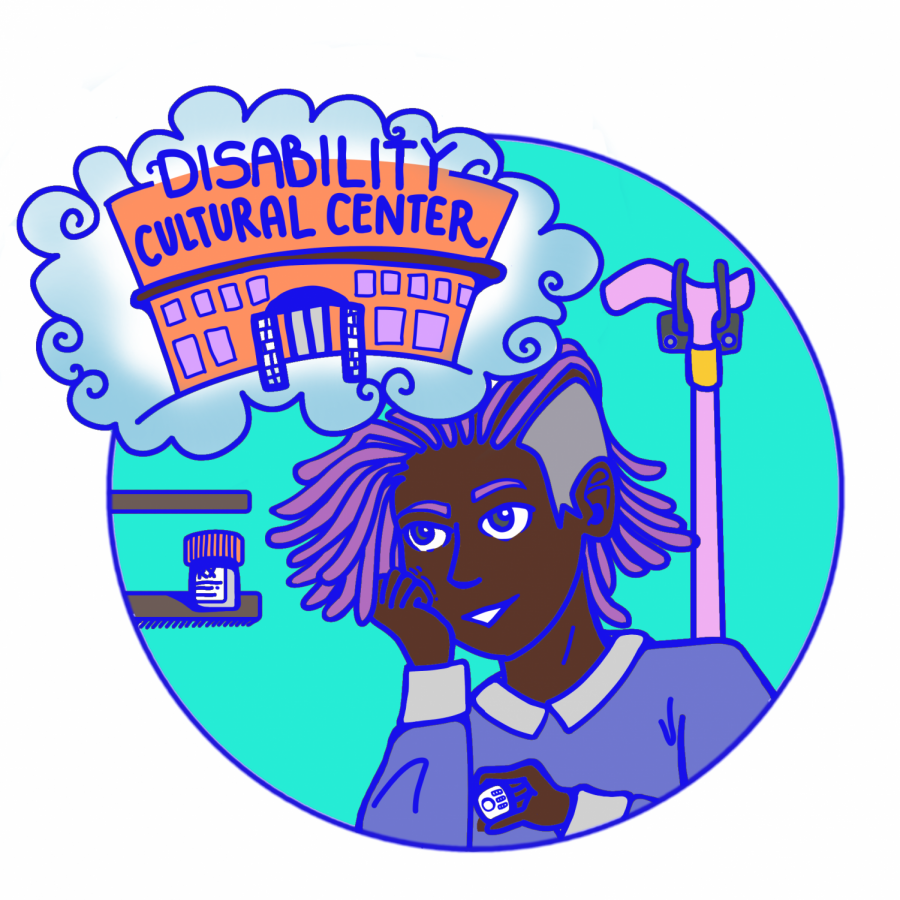Disability Advocacy Student Coalition, college councils start initiative for UT-Austin disability cultural center
May 5, 2021
When Emily Flores started at UT, she only knew one other disabled student whom she met through Twitter. Before this, Flores hadn’t met anyone else who could relate to her experience with a physical disability.
Now, the journalism sophomore has joined with other students in the movement to create a disability cultural center on campus.
“I don’t think a lot of people consider disability … as a culture,” Flores said. “There are so many events that have happened in our community and so many issues that impact us. Having a center where you can go with other students like you and read up about the history of our community would be … so (important) for me.”
Caroline Graves, government and public relations senior, said she has enjoyed her involvement with inclusive student organizations such as Texas Orange Jackets and the Disability Advocacy Student Coalition. However, she said it’s been difficult at times when able-bodied people don’t accommodate her needs.
During her sophomore year, Graves attended a conference about disability cultural centers. That was when she began talking to other Disability Advocacy Student Coalition members about creating a center at UT.
“My hope is that a disability cultural center would be able to provide guidance or a starting point for students with disabilities,” Graves said. “Having a disability cultural center when I was younger may have made that transition even easier.”
After Graves started the initiative, multiple college councils and disability organizations created an online survey to gauge students’ interest for a disability cultural center at UT, which they sent out in March. Most of the 988 students who completed it supported the idea, including Flores.
“I really do hope that UT does go with (the center) because … you don’t see disability (included) when people are talking about inclusivity on campuses,” Flores said. “I don’t think that there’s a place for disabled students right now to feel like they belong.”
Ideas for the center’s facilities include a library with books about disability culture, study spots open to all students, accommodating testing centers and workshops about how able-bodied people can be allies.
Nick Winges-Yanez, the coordinator of the Disability Studies program, has been working with organizations like the Natural Sciences Council and Disability Advocacy Student Coalition on this initiative for the past few months.
“A lot of (disabled) students don’t feel valued on campus, and they feel like they don’t necessarily have a place that they fit in,” Winges-Yanez said. “Having a center … would be a way to have UT explicitly say that they value disabled students and disability.”
Nutrition sophomore Divya Kashyap said she is disabled herself and is working with the Natural Sciences Council to put a greater focus on its disabled community. She interviewed other disabled people about their campus experiences, where some said they don’t always disclose their disabilities for fear of being treated differently.
“There’s always stigma, especially against mental health, learning disabilities and physical disabilities,” Kashyap said. “It’s hard to have equity when the system wasn’t designed to include us in the first place.”
When the survey closed in April, neuroscience sophomore Shubhi Nanda began working with students from other organizations on a data report based on the survey responses. They plan to finalize these over the summer and present them to the Senate of College Councils, Graduate Student Assembly and Student Government next fall.
“The center … is supposed to be an inclusive and safe space for everyone,” Nanda said. “We want it to be a place where people with disabilities can have access to resources that they may not have … on campus.”



